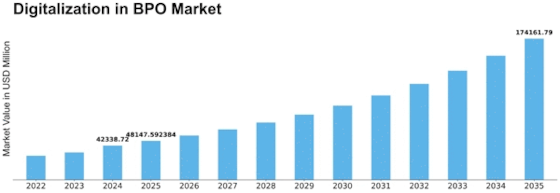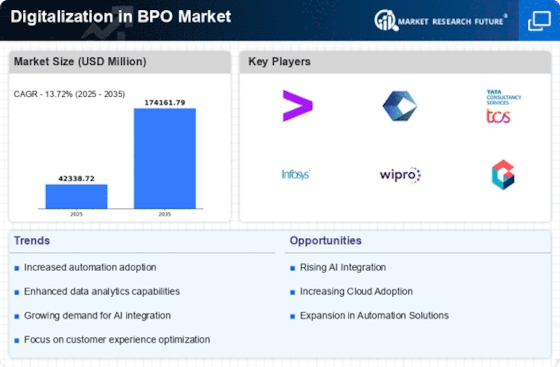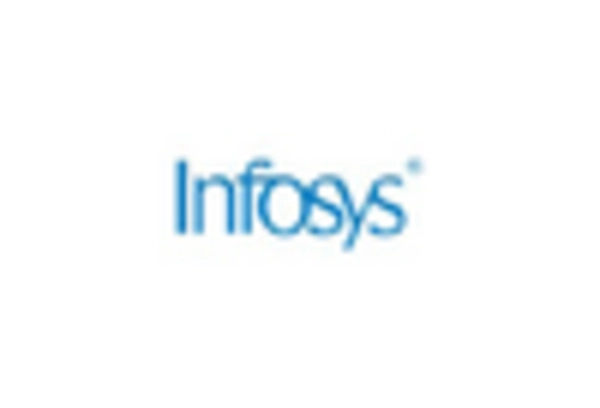Digitalization In Bpo Size
Digitalization in BPO Market Growth Projections and Opportunities
The BPO (Business Process Outsourcing) market is undergoing a significant transformation due to the pervasive influence of digitalization. This shift is fundamentally altering market dynamics, reshaping how businesses operate and compete in the global landscape. Digitalization, characterized by the integration of digital technologies into various aspects of business operations, has become a cornerstone for efficiency, innovation, and competitiveness within the BPO sector.
One key aspect of the market dynamics influenced by digitalization is the increased demand for specialized services. As businesses embrace digital transformation, they seek BPO partners with expertise in areas such as data analytics, artificial intelligence, robotic process automation, and cloud computing. These technologies enable BPO providers to offer more sophisticated and value-added services to their clients, ranging from predictive analytics for decision-making to intelligent automation for streamlining processes. Consequently, BPO firms must continuously invest in updating their skill sets and technological capabilities to meet evolving client needs and stay competitive in the market.
Moreover, digitalization has led to a paradigm shift in customer expectations, driving the need for enhanced customer experiences and personalized services. In response, BPO providers are leveraging digital tools and platforms to deliver more seamless and tailored interactions across various touchpoints. This includes implementing chatbots for customer support, deploying data analytics for personalized marketing campaigns, and utilizing social media listening tools for proactive engagement. By embracing digitalization, BPO firms can not only meet but exceed customer expectations, thereby fostering long-term relationships and driving business growth.
Another significant impact of digitalization on market dynamics is the emergence of new players and business models. Traditional BPO firms are facing competition from agile startups and tech-savvy companies offering niche digital services. These newcomers leverage innovative technologies and agile methodologies to disrupt the market and capture market share rapidly. Additionally, the rise of platform-based business models, enabled by digitalization, allows businesses to access BPO services on-demand through digital marketplaces and platforms. This shift towards digital platforms fosters greater flexibility, scalability, and cost-effectiveness for both service providers and clients, reshaping the traditional BPO landscape.
Furthermore, digitalization is driving a fundamental restructuring of BPO processes and workflows. Traditional, labor-intensive tasks are being automated through robotic process automation (RPA) and artificial intelligence (AI), leading to increased operational efficiency and cost savings. This automation not only reduces human error but also enables BPO providers to reallocate resources towards higher-value activities that require human expertise, such as strategic decision-making and complex problem-solving. Consequently, BPO firms are redefining their service offerings and value propositions to focus on delivering more strategic, data-driven insights and solutions to their clients.



















Leave a Comment